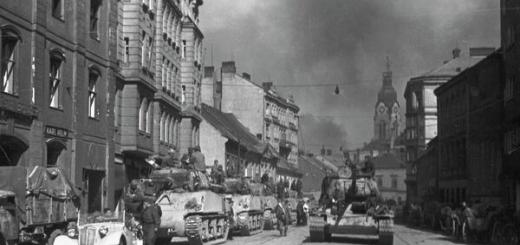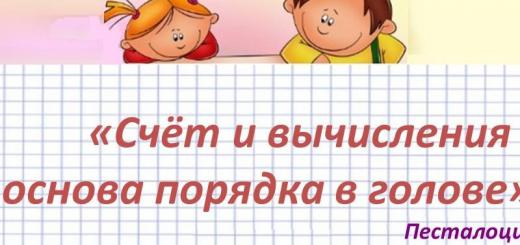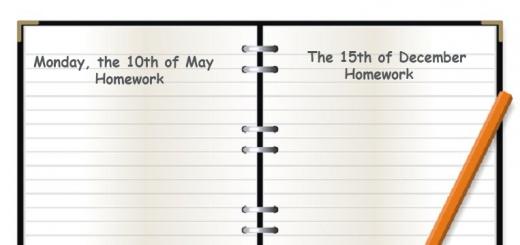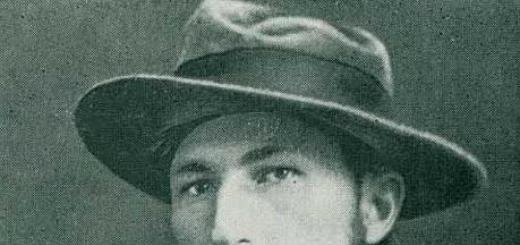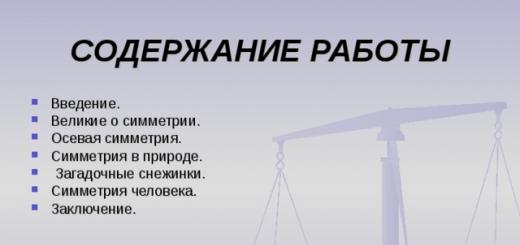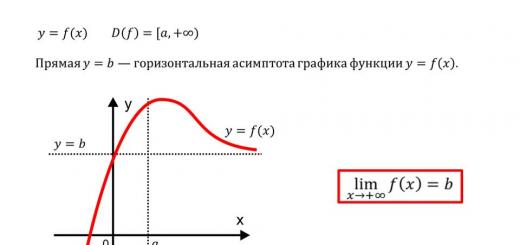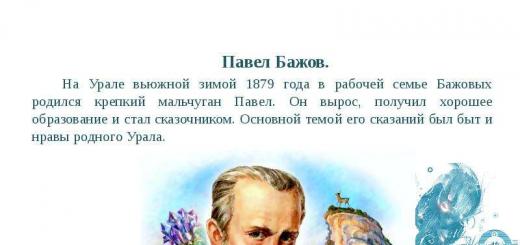1. A SINGLE ACTIVITY is isolated -
xya, if it indicates the time of action, it is applied
rank, condition, etc. (but usually not on the image of action)
actions); more often such a participle comes before
predicate verb: Satisfied passengers,
being silent, we admired the sunny day (Fed.);
The Cossacks looked at him with restraint,
parting (Sh.).
2. As a rule, two single actions are isolated
participles acting as homogeneous
members of the proposal, most often circumstances:
Yermolai, sniffing and waddling, ran away
fifty miles a day (T.).
3. As a rule, the adverbial clause is isolated
turnover (regardless of the place it occupies in
relation to the predicate verb): After passing several
about steps, the Cossacks turned off the ditch (L. T.);
The boat rushed off, silently and easily
hustling among the courts (M. G.).
4. Participial phrase (or single gerund-
stiye), standing after the coordinating or subordinating
corporal conjunction, is separated from it by a comma (ta-
This design can be rearranged to another place -
then sentences): Our father Chimsha-Himalayan
was one of the cantonists, but having served as an officer
rank, left us hereditary nobility and
little name (Ch.); Life is so devilish
that without knowing how to hate, it is impossible to sincerely
not to love (M.G.).
The exception is those cases when the derivation
private turnover comes after the adversative conjunction
and, because such participial turnover impossible
can be rearranged to another place in the sentence without
destruction of its structure: I’m still in the rooms
I heard that the samovar was humming unnaturally angrily,
and upon entering the kitchen, he saw with horror that he was all
turned blue and was shaking (M.G.).
However, when contrasting predicates with
the fifth is also placed after the conjunction a: We didn’t ask
then they read poems, and, trying to remember them, learned
get it by heart.
5. If the gerund has as a dependent
words are a conjunctive word which is part of a determiner
telial subordinate clause of a complex
sentences, then such a gerund from adverbial clauses
no part of the comma is separated: He wanted
burn these letters, reading which he involuntarily
recalled his sad past (Kupr.).
6. Two participial phrases connected in opposite directions
repeated conjunction and, not separated by a comma:
One day in the forest I fell into a deep hole,
tearing his side with a twig and tearing the skin on the back of his head -
Please note: if the conjunction and does not connect
two participial phrases, and other constructions
(two predicates, two simple sentences consisting of
ve complex), then the comma can appear before
union, and after it: Makar sat on the wood-
nyakh, swaying slightly, and continued his song
nude (Cor.); Half a minute later the nightingale let go
high fine fraction and, having tried it this way,
The rat stopped, dropped the reins, and, as usual,
with a slight movement of the left hand, unfastening the cover
rifles, right hand took it out (L. T.).
7. Not about b o b l e t s i:
1) single participle, direct participle
closing to the predicate and close in function to na-
speech (such a gerund indicates an image of action
and answers the questions “how?”, “how
zom?" “in what position?”): She returned
from there having lost weight (M. G.) (cf.: returned having lost weight -
neck); She entered the hall without knocking (Sh.) (cf.:
entered without knocking); At home, Gromov always read
2) participial phrase (usually with the meaning of image
actions), closely related in content to the predicate
we also form the semantic center of the statement:
You can live without bragging about your intelligence (M. G.); She's si-
doing things with your head thrown back a little (Mark); The boy was walking
limping on the left leg;
3) participial phrase, which is
stable expression(idiom): don’t stop shouting
leading the spirit; lie staring at the ceiling; rush
sticking out tongue; listen with your mouth open; work for
rolling up the sleeves; rush about without remembering yourself; conduct
night without closing your eyes, etc. Exception: stable
high combinations (adverbial phrases), I speak-
acting as introductory combinations: To be honest,
we expected different results; As it appears,
spring will be early, etc.;
4) expressions with words starting from, based on, es-
have they lost the meaning of verbosity and protrusion?
ut in the role of complex prepositions: Construction of this
at home is carried out starting in the fall; Statistical
indicators are derived based on many data
(the words began and proceeding can be omitted without damage
for meaning and sentence structure);
5) participial phrase (and single gerund-
stiye), used as a homogeneous
member of a sentence with a non-isolated circumstance
vom: Having stopped Vlasova, with one breath he didn’t
waiting for answers, he showered her with crackling and dry
words (M.G.); He answered him without embarrassment and
frankly (Pom.).
8. It can be separated about the situation of the body (time-
neither, reasons, conditions, etc.)” expressed substantive
nominative in the form of indirect case (more often with pre-
log), especially if such turnover is very widespread
wounded: Apparently the Chichikovs were also wounded for a few minutes
life, turn into poets (G.); I'm a little behind
then, with the help of a whip and legs, he dispersed his
horse (L.T.); We knew that from Kerch, shortly
before our arrival, all excess was removed
people (M. G.); In early spring, out of ignorance,
local residents hardly fish (Sol.).
Typically, such a structure is formed by
nouns with a preposition or one of the prepositional combinations
taniya: thanks to, due to, despite, as a result of, with,
due to, if available, provided, despite
on, for lack of, according to, with consent, in order to avoid
tion, in accordance, etc. For example, turnover with a company
log despite, as a rule, is isolated. In a row
In some cases, isolation depends on the degree of distribution
innocence of the phrase, its semantic proximity to the main one
parts of the sentence, the presence of additional circumstances
natural meanings, stylistic tasks, etc.
Such circumstances may (but rarely) express
with an adverb: A moment later, into the yard, unknown
but from where, a man in a nankeen caftan ran out
(T.); The awakened rooks, silently and alone, le-
tali above the ground (Ch.); Misha lowered his head and
immediately, answered (M.G.); And so, unexpectedly for
everyone, I passed the exam brilliantly (Kupr.).
241. Rewrite using punctuation marks.
1. Savelich was dozing and rocking on the beam. (P.) 2. Re-
the child sometimes suddenly becomes quiet while sitting next to the nanny and looks
looks at everything so intently. (Gonch.) 3. About the revolution he
never spoke, but somehow smiled menacingly and remained silent
about her. (Hertz.) 4. Laughing stupidly and mooing affectionately, drawling
He gave Tatyana a gingerbread cockerel. (T.) 5. Golden month
crawling down to the steppe. (L.T.) 6. Grumbling and looking around
Kashtanka entered the room. (Ch.) 7. At times along the river
A light swell ran through the wind, sparkling in the sun. (Cor.)
8. Paul began to bring books and tried to read them
noticeably, but after reading it he hid it somewhere. (M. G.) 9. Having rested
he was about to leave. (Fed.) 10. Morozka lowered his
shock and cowardly burying his head in his shoulders ran to the horse
di. (Fad.) 11. Levinson stood for a while, listening
into the darkness and smiling to himself he walked even faster
rey. (Fad.) 12. Sending Metelitsa on reconnaissance Levin-
the dream told him to come back the same way at all costs
at night. (Fad.) 13. Long shavings curling tightly
at times I climbed out of the plane. (Cat.) 14. In front of the old factories
ladies arose dozens of serious problems without solving
which were impossible to switch to new methods
building ships. (Koch.) 15. And day and night in the snow
In the desert I rush to you at breakneck speed. (Gr.) 16. Looking for-
the greatest manifestations of power turned inward and withered away.
Yes I. (Gonch.) 17. He slept without undressing. (L. T.) 18. Lived
The Artamonovs did not meet anyone. (M.G.) 19. He ra-
worked tirelessly. (M. G.) 20. Dmitry listened
his frown. (M. G.) 21. We had dinner slowly and almost
silently. (Mark.) 22. You can start working by starting
from next week. 23. All these days starting from Sunday
It was raining. 24. Calculations are made based on averages
normal 25. The car went without stopping. 26. Children abandoned
tried to run without looking back. 27. We didn’t suggest this as a joke*
Guy. 28. The student answered all the questions without thinking.
29. The narrator fell silent, embarrassed.
242. Rewrite using punctuation marks.
1. At these words the Cossack galloped back, holding on alone
hand in his bosom and a minute later disappeared from sight. (P.)
2. Returning with guests from the kennel yard of Kiril Petro-
Vich sat down to dinner and only without seeing Dubrovsky, he missed
about him. (P.) 3. The guests remained in the dining room, talking in whispers
about this unexpected visit and fearing being un-
modest, they soon parted ways, one after the other, without mercy
thanking the owner for the bread and salt. (P.) 4. Mother sits on the di-
Vanya has his legs tucked under him and lazily knits a children's stocking
yawning and occasionally scratching his head with a knitting needle. (Gonch.)
5. The boy was carrying some kind of bundle under his arm and turning
I began to descend to the pier along a narrow and steep path -
ke. (L.) 6. My coachman climbed down silently and slowly. (T.)
7. Broochka, seeing Gerasim, jumped around the corner and missed
went past him again and followed him. (T.) 8. Met
tea morning, pheasants were calling to each other from all sides. (L.T.)
9. The French army pulled together tighter from danger
continued to gradually melt the same disastrous path
to Smolensk. (L.T.) 10. I got down into the ditch and drove away the drunk
falling into the middle of the flower and falling asleep sweetly and sluggishly
there a furry bumblebee began to pick a flower. (L.T.)
11. Everyone usually approached the office doors
whispering and tiptoeing. (L. T.) 12. You entered the hall
child dancing. (L.T.) 13. After Panov, Niki-
tin and spread his overcoat under himself and sat down leaning
to the tree. (L. T.) 14. ...The wet horses stood with their heads drooping
fishing and people walked around covered with bags from the rain. (Ch.)
15. Kashtanka jumped back, sat down on all four paws and
stretching her muzzle towards the cat burst into a loud, shrill
barking. (Ch.) 16. Sometimes a blind man took a pipe and completely
I forgot myself, matching my mood with thoughtful ones
melodies. (Cor.) 17. Going to bed in the evening and in the morning
getting up, I was only thinking about the upcoming visit to the city*
RU. (Cor.) 18. The fogs solemnly rose enormously
burst into a round dance in the west and, hesitatingly,
went up. (Cor.) 19. Two people dreamed of swaying
sitting in a boat on the water and looking around thoughtfully
myself. (M.G.)
243. Rewrite using punctuation marks.
1. And people again walked through the streets, smoked with black
with our faces spreading the sticky smell of cars in the air -
of rich oil glistening with hungry teeth. (M. G.) 2. Sea
played with small waves, giving birth to them, decorating them with fringe
my foam pushing against each other and breaking into small pieces
dust. (M.G.) 3. “Seen it?” - asked the smiling grandmother -
ka. (M.G.) 4. Throwing the knapsack off his shoulders, Lyonka put it
looking at her head and looking a little at the sky through the foliage
over his face, fast asleep, hidden from view by a shadow
fence (M.G.) 5. His friend bent over with his elbows
and propping his cheekbones with his palms, he smiled thoughtfully. (M.G.)
6. We got up at five o’clock in the morning without having had time to sleep yet
and the stupid and indifferent at six sat down at the table to do
pretzels made from dough. (M. G.) 7. There are someone’s eyes in the dark
looked without blinking. (A.T.) 8. Sergei dismissed Vera
nodded to her and left whistling. (A.T.) 9. Frost you-
walked into the clearing and put two fingers in his mouth and whistled
three times with a shrill robber whistle. (Fad.)
10. Having untied Morozka’s bag, he jumped off the horse and
Fearing the ground, he climbed along the ridges. (Fad.) 11. Near the highway
The explosion of the crater killed four guys with a bomb. (Marmot.)
12. The dog raised its shaggy tail like a donut and hung it
tongue and often dryly breathing ran into the depths of the yard, dragging
behind you along a high-tensioned wire, a rattling
chain. (Cat.) 13. Grandfather smiled clearly and deliberately
showing his gums and saying something quietly but without much
efforts. (Cat.) 14. Seryo-
Ms. mother's attacks. (N.O.) 15. Davydov turned pale at-
I tried with all my might to free my hands and couldn’t. (Sh.)
16. Hundreds of shells and mines tearing open with a whistle and howl
hot air flew from the heights and burst near the trenches
raising black fountains of earth splashing with fragments
and plowing smoke up and down the already completely
a winding line of defense dotted with craters. (Sh.)
17. The horse lazily obeys the movement of someone else’s hand
lifting his head up on his outstretched neck and wearily dragging his butt
I walked to the stables. (Sh.) 18. Near the porch
There was a crowd of about ten Cossacks smoking. (Sh.)
244. Rewrite using punctuation marks.
1. The good commandant, with the consent of his wife, decided
free Shvabrin. (P.) 2. Bulba on the occasion of arrival
sons ordered to convene all the centurions and the entire regimental
rank (G.) 3. As a result of this incident, Vasily
I no longer saw my parent. (T.) 4. Bla-
thanks to the excellent weather and especially holiday
the street of the village of Maryinsky became lively again. (Grieg.)
5. Raisa Pavlovna, even in view of such critical circumstances,
The government does absolutely nothing. (M.-S.) 6. Each
Summer dawn Gerasim, despite his blindness, went to the fields
catch quails. (Boon.) 7. Contrary to the opinion of Chizh Bak-
Mechik began to like Lanov. (Fad.) 8. Nikitin
taught the boy carpentry and, for lack of self-
Sednik spent hours talking to him about the ancient
Single gerund Not is isolated, if it retains the meaning of verbality, indicating a manner of action. In this case, it usually approaches in meaning an adverb or a combination of a noun and a preposition used in circumstantial meaning, and is not isolated: The train was comingdo not stop(“non-stop”); She talked about it smiling(“said with a smile”); He was sittingwithout moving(how did you sit? In what position?).
Examples of non-isolated single circumstances: Those seeking manifestations of power turned inward and fading(Gonch.); Veretyev sat leaning over and patted the grass with a branch(T.); Classes were supposed to last until two o'clock. without interruption(L.T.); He slept without undressing(L.T.); Cranes usually sleep standing(Ax.) - adverbial meaning; At home, Gromov always read lying down(Ch.) - adverbial meaning; He walked behind his wife's coffin stumbling(M.G.); She returned from there having lost weight(M.G.); Dmitry listened to him frowning(M.G.); He… not to mentionthrew money(M.G.); he said out of breath(M.G.); There, in the darkness, someone's eyes were looking without blinking(A.T.); Sergei pushed Vera aside, nodded to her and left whistling.(A.T.); At first I answered with a frown(Forsh); [Aksinya] entered the hall without knocking(Sh.); The girl ran into the room sobbing; Another simpleton he would think so in earnest; Sergei was sitting leaning over and tied up his skates; The children were chatting without ceasing; He lived with his grief without hiding; He kept talking yawning; Her eyes moved from one picture to another comparing;He hid the money in his wallet not to mention; It was raining without stopping; The train has passed without delay; You can't pass them by not being happy; The partisans were walking crouching;The neighbor listened to me without objecting; We walked hugging along a forest road; The girl spoke gasping for breath; The driver shouted cursing; They listened Not understanding our conversations - phrase our conversations refers to the predicate listened; He signed the papers without reading; Let's move forward without looking back; He sat down on a chair without undressing and thought; The old man was walking staggering; Gone without saying goodbye; The apple falls when ripe; Passed without hiding; We discussed the question of who chuckling, who is serious; The path went wriggling; He ran into the yardscreaming; No one is given the right to live not working; The girl was telling sobbing; Gone looking down; Without stopping the same cry disturbed the ears; Passed by without turning around; Everyone listened not breathing; Slowly he walked around the room; Without hesitation she rejected; Shouldn't do without thinking; Follow without reasoning; People stood petrified; He spoke making excuses; The mountain road was going looping; Sits by the table saddened; I took the book not looking; I walked thinking; Sat leaning on his elbows; The wave rolled off, ringing; Messages from the front could not be read without worrying; Everyone stood there for about five minutes without moving; The young man rushed to help without hesitation; The sniper shot without aiming.
Separation or the non-isolation of a single gerund may depend on the place it occupies in relation to the predicate verb: the same word can be isolated at the beginning or in the middle of a sentence, but not at the end. Wed:
He saidstuttering. - He added,stutteringa few words from myself;
They walked slowly. - On the way to,slowly, they picked mushrooms and berries;
She woke up her sonsmiling. - Smiling,she woke up her son;
Had dinnerleisurely(Mark.). - Through the yardleisurely, a squat, short-legged, round-headed man walked(Mark.).
The isolation of a single gerundial participle can be influenced by its type: more often gerundial participles of the imperfect form are not isolated (on -and I), since they usually express the circumstance of the manner of action, while the perfect participles (on -v, -shi) there are other shades of meaning (time, reason, conditions, concessions), which often leads to their isolation. Wed: listened without interrupting; I started looking closely without recognizing; Took breaks getting tired; Having refused, he will miss this last opportunity; Obomlev, she stood motionless in the doorway; Without calling came to my house; Indignant, he refused to answer; Tired they made stops along the way.
Separation or the non-isolation of a single gerund may be due to lexical meaning predicate verb: the same participle is isolated with some verbs, but not with others. Wed:
I asked do not stop(the gerund does not indicate the “way of asking”; it denotes other actions simultaneous with the movement). - Walked do not stop(“non-stop”);
Lost in thoughts smiling(“thought and smiled”). - Said smiling(“spoke with a smile”).
If a single gerund is located between two predicate verbs and in meaning can be attributed to any of them as a circumstance of the manner of action, it is not separated by a comma from the predicate to which the writer refers it: He squatted down groaning reached into the bottom drawer of the table; The girl ran out into the garden, crying rushed to her mother.
Introductory words expressing the speaker's feelings:
Correct answer: C
Introductory words expressing a certain degree of confidence:
A) so, therefore, means.
B) they say, they report, in my opinion.
C) fortunately, to joy, to chagrin.
D) undoubtedly, obviously, probably.
E) in one word, so to speak, in other words.
Correct answer: D
Introductory words indicating the source of the message:
A) so, therefore, means.
B) they say, they report, in my opinion.
C) fortunately, to joy, to chagrin.
D) undoubtedly, obviously, probably.
E) in one word, so to speak, in other words.
Correct answer: B
Introductory words indicating the connection of thoughts, the sequence of presentation:
A) so, therefore, means.
B) they say, they report, in my opinion.
C) fortunately, to joy, to chagrin.
D) undoubtedly, obviously, probably.
E) in one word, so to speak, in other words.
Correct answer: A
Introductory words indicating techniques and ways of formatting a statement:
A) so, therefore, means.
B) they say, they report, in my opinion.
C) fortunately, to joy, to chagrin.
D) undoubtedly, obviously, probably.
E) in one word, so to speak, in other words.
Correct answer: E
A) She entered the hall without knocking. (M. Sholokhov)
Correct answer: E
Sentence with an introductory word:
E) I crept up, spurred by curiosity, and lay down in the grass above the cliff of the bank. (M. Yu. Lermontov)
Correct answer: C
True, he made a mistake this morning. (A.I. Solzhenitsyn) This sentence is complicated
A) appeal.
B) an introductory word.
C) a separate addition.
D) homogeneous additions.
Correct answer: B
In a word, grandfather Shchukar became a coachman and groom at the same time. (M. Sholokhov) This sentence is complicated
A) appeal.
B) an introductory word.
C) introductory sentence.
E) homogeneous additions.
Correct answer: B
The father, apparently, was in a complacent state. (V.G. Korolenko) Introductory word to this proposal
A) expresses a feeling.
Correct answer: D
In a word, grandfather Shchukar became a coachman and groom at the same time. (M. Sholokhov) Introductory word in this sentence
A) expresses a feeling.
B) indicates the source of the message.
C) expresses a high degree of confidence.
D) expresses less confidence.
E) indicates techniques and ways of formatting a statement.
Correct answer: E
But maybe you want to know the ending of Bela's story. (M. Yu. Lermontov) Introductory word in this sentence
A) expresses a feeling.
B) indicates the source of the message.
C) expresses a high degree of confidence.
D) expresses less confidence.
E) indicates techniques and ways of formatting a statement.
Correct answer: D
Unfortunately, I must add that Pavel passed away that same year. (I. S. Turgenev) Introductory word in this sentence
A) expresses a feeling.
B) indicates the source of the message.
C) expresses a high degree of confidence.
D) expresses less confidence.
E) indicates techniques and ways of formatting a statement.
Correct answer: A
You, they say, are a great master of singing. (I. A. Krylov) Introductory word in this sentence
A) expresses a feeling.
B) indicates the source of the message.
C) expresses a high degree of confidence.
D) expresses less confidence.
E) indicates techniques and ways of formatting a statement.
Correct answer: B
But, according to rumors, some part fought stubbornly near Kamensk. (A. A. Fadeev) Introductory word in this sentence
A) expresses a feeling.
B) indicates the source of the message.
C) expresses a high degree of confidence.
D) expresses less confidence.
E) indicates techniques and ways of formatting a statement.
Correct answer: B
Tatyana was of a very meek disposition, or, better said, intimidated. (I. S. Turgenev) Introductory word in this sentence
A) expresses a feeling.
B) indicates a connection of thoughts.
C) indicates the source of the message.
D) expresses a high degree of confidence.
E) indicates techniques and ways of formatting a statement.
Correct answer: E
The introductory word indicates ways to formulate the statement in a sentence
E) In a word, grandfather Shchukar became a coachman and groom at the same time. (M. Sholokhov)
Correct answer: E
A) And you, I see, are silk. (I. S. Turgenev)
B) You, they say, are a great master of singing. (I. A. Krylov)
C) But, according to rumors, some part fought stubbornly near Kamensk. (A. A. Fadeev)
D) The father seemed to be in a complacent state. (V. G. Korolenko)
E) In a word, grandfather Shchukar became a coachman and groom at the same time. (M. Sholokhov)
Correct answer: D
The introductory word expresses less confidence in the sentence
E) In a word, grandfather Shchukar became a coachman and groom at the same time. (M. Sholokhov)
Correct answer: B
The introductory word indicates the techniques and ways of formatting the statement in a sentence
A) You, they say, are a great master of singing. (I. A. Krylov)
B) But maybe you want to know the ending of Bela's story. (M. Yu. Lermontov)
C) From the point of view of an artilleryman, Elyutin said unthinkable things. (G. Baklanov)
D) Tatyana’s disposition was very meek, or, better said, intimidated. (I. S. Turgenev)
E) The father seemed to be in a complacent state. (V. G. Korolenko)
Correct answer: D
The introductory word expresses the feeling in a sentence
A) You, they say, are a great master of singing. (I. A. Krylov)
B) But maybe you want to know the ending of Bela's story. (M. Yu. Lermontov)
C) Unfortunately, I must add that Pavel passed away in the same year. (I. S. Turgenev)
D) The father seemed to be in a complacent state. (V. G. Korolenko)
E) In a word, grandfather Shchukar became a coachman and groom at the same time. (M. Sholokhov)
Correct answer: C
The introductory word indicates the source of the message in the sentence
A) You, they say, are a great master of singing. (I. A. Krylov)
B) But maybe you want to know the ending of Bela's story. (M. Yu. Lermontov)
C) Tatyana’s disposition was very meek, or, better said, intimidated. (I. S. Turgenev)
D) The father seemed to be in a complacent state. (V. G. Korolenko)
E) In a word, grandfather Shchukar became a coachman and groom at the same time. (M. Sholokhov)
Correct answer: A
The father, apparently, was in a complacent state. (V. G. Korolenko) This proposal is complicated
A) appeal.
B) an introductory word.
C) an introductory sentence.
D) a separate addition.
E) an isolated circumstance.
Correct answer: B
And you, I see, are silk. (I. S. Turgenev) This sentence is complicated
A) appeal.
B) an introductory word.
C) an introductory sentence.
D) a separate addition.
E) an isolated circumstance.
Correct answer: C
You know, he respects me very much. (I. S. Turgenev) This sentence is complicated
A) appeal.
B) an introductory word.
C) an introductory sentence.
D) a separate addition.
E) an isolated circumstance.
Correct answer: C
But maybe you want to know the ending of Bela's story. (M. Yu. Lermontov) This sentence is complicated
A) appeal.
B) introductory words.
C) an introductory sentence.
D) a separate addition.
E) an isolated circumstance.
Correct answer: B
A) And you, I see, are silk. (I. S. Turgenev)
B) Sciences alien to music were hateful to me. (A.S. Pushkin)
C) The Cossacks looked at him restrainedly, parting. (M. Sholokhov)
D) Sergei pushed Vera aside, nodded to her and left, whistling. (A. N. Tolstoy)
E) In a word, grandfather Shchukar became a coachman and groom at the same time. (M. Sholokhov)
Correct answer: A
Sentence with introductory sentence:
A) I believe you, uncle. (A. Chekhov)
B) Timur! Your uncle is looking for you. (A.P. Gaidar)
C) True, he made a mistake this morning. (A.I. Solzhenitsyn)
D) Should he, a dwarf, compete with a giant? (A.S. Pushkin)
E) Pechorin, I think I already said, passionately loved hunting. (M. Yu. Lermontov)
Correct answer: E
My father bequeathed to me, firstly, to please all people without exception... (A. S. Griboyedov) This proposal is complicated
A) appeal.
B) an introductory word.
C) an introductory sentence.
D) a separate addition.
E) an isolated circumstance.
Help! Place punctuation marks, highlight special circumstances. 1) The cat sat frowning during the shooting experiment. (M. Bulgakov) 2) However, when Galya smiled, she immediately became prettier. (M. Bulgakov) 3) The fragrant grass was drying, the clouds were smoking. (I. Bunin) 4) The clock hissingly struck twelve times in the next dark and empty room. (I. Bunin) 5) Sergei dismissed Vera, nodded to her and left whistling. (A.N. Tolstoy)6) There in the darkness someone’s eyes looked without blinking. (A.N. Tolstoy) 7) After standing, Solomin and Vera left. (A.N. Tolstoy) 8) Lilya sat motionless. (A.N. Tolstoy) 9) The satisfied passengers fell silent and admired the sunny day. (K. Fedin) 10) The foliage of the birch trees hangs motionless, the dew flows down the white trunks. (K. Paustovsky) 11) Turning away, he began to look at the column under construction. (K. Simonov) 12) The maid agreed laughing and they went. (M. Volkonsky) 13) But my favorite is the birch girl who came from fairy tales and epics, the Snow Maiden, the favorite of the frost, Alyonushka of the hills and plains. (V. Rozhdestvensky)
Left a reply Guest
1) The cat sat, frowning, during the shooting experiment. (M. Bulgakov) 2) However, when Galya smiled, she immediately became prettier. (M. Bulgakov) 3) Fragrant, the herbs dried, the clouds smoked, smoking. (I. Bunin) 4) The clock, hissing, struck twelve times in the next room, dark and empty. (I. Bunin) 5) Sergei pushed Vera aside, nodded to her and left, whistling. (A.N. Tolstoy)6) There, in the darkness, someone’s eyes looked without blinking. (A.N. Tolstoy) 7) After standing, Solomin and Vera left. (A.N. Tolstoy) 8) Lilya sat without moving. (A.N. Tolstoy) 9) Satisfied passengers fell silent and admired the sunny day. (K. Fedin) 10) The foliage of the birch trees hangs without moving, dew flows down the white trunks. (K. Paustovsky)11) Turning away, he began to look at the column that was setting up. (K. Simonov) 12) The maid, laughing, agreed, and they went. (M. Volkonsky) 13) But my dearest is the birch girl who came from fairy tales and epics, the Snow Maiden, the darling of frost, Alyonushka of the hills and plains. (V. Rozhdestvensky)
The isolated circumstance is there, in the dark.
Introductory words.
Introductory words expressing the speaker’s feelings:
Correct answer: C
Introductory words expressing a certain degree of confidence:
A) so, therefore, means.
B) they say, they report, in my opinion.
C) fortunately, to joy, to chagrin.
D) undoubtedly, obviously, probably.
E) in one word, so to speak, in other words.
Correct answer: D
Introductory words indicating the source of the message:
A) so, therefore, means.
B) they say, they report, in my opinion.
C) fortunately, to joy, to chagrin.
D) undoubtedly, obviously, probably.
E) in one word, so to speak, in other words.
Correct answer: B
Introductory words indicating the connection of thoughts, the sequence of presentation:
A) so, therefore, means.
B) they say, they report, in my opinion.
C) fortunately, to joy, to chagrin.
D) undoubtedly, obviously, probably.
E) in one word, so to speak, in other words.
Correct answer: A
Introductory words indicating techniques and ways of formatting a statement:
A) so, therefore, means.
B) they say, they report, in my opinion.
C) fortunately, to joy, to chagrin.
D) undoubtedly, obviously, probably.
E) in one word, so to speak, in other words.
Correct answer: E
Sentence with an introductory word:
A) She entered the hall without knocking. (M. Sholokhov)
Correct answer: E
Sentence with an introductory word:
E) I crept up, spurred by curiosity, and lay down in the grass above the cliff of the bank. (M. Yu. Lermontov)
Correct answer: C
True, he made a mistake this morning. () This sentence is complicated
A) appeal.
B) an introductory word.
C) a separate addition.
D) homogeneous additions.
Correct answer: B
In a word, grandfather Shchukar became a coachman and groom at the same time. (M. Sholokhov) This sentence is complicated
A) appeal.
B) an introductory word.
C) an introductory sentence.
D) a separate addition.
E) homogeneous additions.
Correct answer: B
The father, apparently, was in a complacent state. (V. G. Korolenko) Introductory word in this sentence
A) expresses a feeling.
Correct answer: D
In a word, grandfather Shchukar became a coachman and groom at the same time. (M. Sholokhov) Introductory word in this sentence
A) expresses a feeling.
B) indicates the source of the message.
C) expresses a high degree of confidence.
D) expresses less confidence.
E) indicates techniques and ways of formatting a statement.
Correct answer: E
But maybe you want to know the ending of Bela's story. (M. Yu. Lermontov) Introductory word in this sentence
A) expresses a feeling.
B) indicates the source of the message.
C) expresses a high degree of confidence.
D) expresses less confidence.
E) indicates techniques and ways of formatting a statement.
Correct answer: D
Unfortunately, I must add that Pavel passed away that same year. (I. S. Turgenev) Introductory word in this sentence
A) expresses a feeling.
B) indicates the source of the message.
C) expresses a high degree of confidence.
D) expresses less confidence.
E) indicates techniques and ways of formatting a statement.
Correct answer: A
You, they say, are a great master of singing. (I. A. Krylov) Introductory word in this sentence
A) expresses a feeling.
B) indicates the source of the message.
C) expresses a high degree of confidence.
D) expresses less confidence.
E) indicates techniques and ways of formatting a statement.
Correct answer: B
But, according to rumors, some part fought stubbornly near Kamensk. (A. A. Fadeev) Introductory word in this sentence
A) expresses a feeling.
B) indicates the source of the message.
C) expresses a high degree of confidence.
D) expresses less confidence.
E) indicates techniques and ways of formatting a statement.
Correct answer: B
Tatyana was of a very meek disposition, or, better said, intimidated. (I. S. Turgenev) Introductory word in this sentence
A) expresses a feeling.
B) indicates a connection of thoughts.
C) indicates the source of the message.
D) expresses a high degree of confidence.
E) indicates techniques and ways of formatting a statement.
Correct answer: E
The introductory word indicates ways to formulate the statement in a sentence
A) And you, I see, are silk. ()
E) In a word, grandfather Shchukar became a coachman and groom at the same time. (M. Sholokhov)
Correct answer: E
A) And you, I see, are silk. ()
B) You, they say, are a great master of singing. (I. A. Krylov)
C) But, according to rumors, some part fought stubbornly near Kamensk. (A. A. Fadeev)
D) The father seemed to be in a complacent state. (V. G. Korolenko)
E) In a word, grandfather Shchukar became a coachman and groom at the same time. (M. Sholokhov)
Correct answer: D
The introductory word expresses less confidence in the sentence
E) In a word, grandfather Shchukar became a coachman and groom at the same time. (M. Sholokhov)
Correct answer: B
The introductory word indicates the techniques and ways of formatting the statement in a sentence
A) You, they say, are a great master of singing. (I. A. Krylov)
B) But maybe you want to know the ending of Bela's story. (M. Yu. Lermontov)
C) From the point of view of an artilleryman, Elyutin said unthinkable things. (G. Baklanov)
D) Tatyana’s disposition was very meek, or, better said, intimidated. (I. S. Turgenev)
E) The father seemed to be in a complacent state. (V. G. Korolenko)
Correct answer: D
The introductory word expresses the feeling in a sentence
A) You, they say, are a great master of singing. (I. A. Krylov)
B) But maybe you want to know the ending of Bela's story. (M. Yu. Lermontov)
C) Unfortunately, I must add that Pavel passed away in the same year. (I. S. Turgenev)
D) The father seemed to be in a complacent state. (V. G. Korolenko)
E) In a word, grandfather Shchukar became a coachman and groom at the same time. (M. Sholokhov)
Correct answer: C
The introductory word indicates the source of the message in the sentence
A) You, they say, are a great master of singing. (I. A. Krylov)
B) But maybe you want to know the ending of Bela's story. (M. Yu. Lermontov)
C) Tatyana’s disposition was very meek, or, better said, intimidated. (I. S. Turgenev)
D) The father seemed to be in a complacent state. (V. G. Korolenko)
E) In a word, grandfather Shchukar became a coachman and groom at the same time. (M. Sholokhov)
Correct answer: A
The father, apparently, was in a complacent state. (V. G. Korolenko) This proposal is complicated
A) appeal.
B) an introductory word.
C) an introductory sentence.
D) a separate addition.
E) an isolated circumstance.
Correct answer: B
And you, I see, are silk. () This sentence is complicated
A) appeal.
B) an introductory word.
C) an introductory sentence.
D) a separate addition.
E) an isolated circumstance.
Correct answer: C
You know, he respects me very much. () This sentence is complicated
A) appeal.
B) an introductory word.
C) an introductory sentence.
D) a separate addition.
E) an isolated circumstance.
Correct answer: C
But maybe you want to know the ending of Bela's story. (M. Yu. Lermontov) This sentence is complicated
A) appeal.
B) introductory words.
C) an introductory sentence.
D) a separate addition.
E) an isolated circumstance.
Correct answer: B
A) And you, I see, are silk. ()
B) Sciences alien to music were hateful to me. ()
C) The Cossacks looked at him restrainedly, parting. (M. Sholokhov)
D) Sergei pushed Vera aside, nodded to her and left, whistling. ()
E) In a word, grandfather Shchukar became a coachman and groom at the same time. (M. Sholokhov)
Correct answer: A
Sentence with introductory sentence:
A) I believe you, uncle. (A. Chekhov)
B) Timur! Your uncle is looking for you. ()
C) True, he made a mistake this morning. ()
D) Should he, a dwarf, compete with a giant? ()
E) Pechorin, I think I already said, passionately loved hunting. (M. Yu. Lermontov)
Correct answer: E
My father bequeathed to me, firstly, to please all people without exception... (A. S. Griboyedov) This proposal is complicated
A) appeal.
B) an introductory word.
C) an introductory sentence.
D) a separate addition.
E) an isolated circumstance.
Correct answer: B
